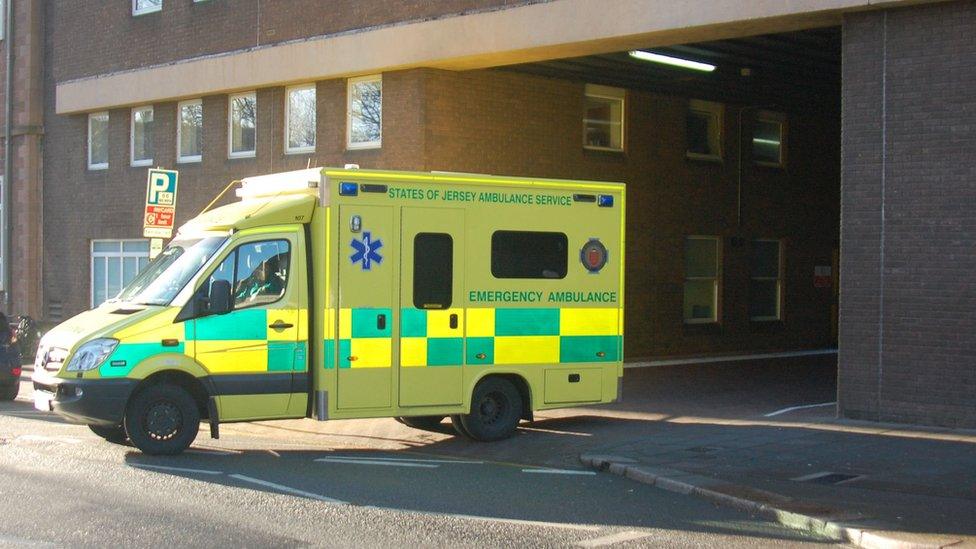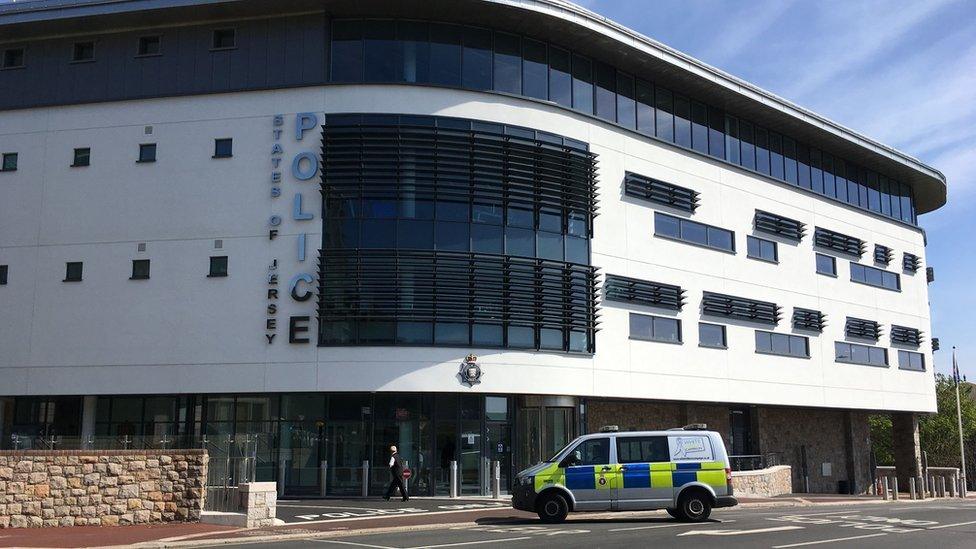New ambulance service to 'measure seriousness' of 999 calls
- Published

The government said the new service would alert call handlers to the "potential of a patient with an immediately life-threatening emergency" much earlier
Jersey's ambulance service has changed the way emergency calls are prioritised.
The new ambulance response programme (ARP) will use a set of questions to "measure the seriousness" of calls.
The Justice and Home Affairs department said it would enable the service to "deal with peaks in demand and unexpected events" more efficiently.
The Home Affairs Scrutiny Panel said ambulances could be held back from going to less serious incidents.
The government said its new programme would help call handlers identify the needs of the caller in order to "send the most appropriate response first time".
Head of the panel Deputy Catherine Curtis said: "We still have a very good ambulance service with great staff compared to parts of the UK, we're lucky we can get an ambulance very quickly, but we do have to carefully watch the situation with the staff shortages."
The scrutiny panel found senior officers or volunteer workers were being asked to cover shifts when paramedics or technicians were not available.
Ms Curtis said recruitment was an issue for the service.
She said: "Long term, I hope this problem would go away somehow but it's the cost of living in Jersey, which is causing a problem with staff recruitment and retention.
"Maybe there could be some accommodation actually provided for the ambulance staff."
The Home Affairs Minister Deputy Helen Miles said it was recruiting agency staff to help - and three should be fulfilling empty positions by the end of October.

Follow BBC Jersey on Twitter, external and Facebook, external. Send your story ideas to channel.islands@bbc.co.uk, external.
Related topics
- Published4 July 2022
- Published26 October 2021
